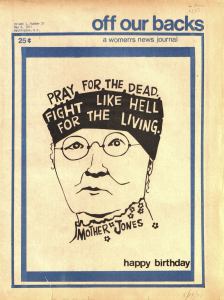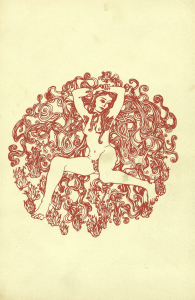Sexism and misogyny have found their way into the fundamental foundations of many Roman Catholic, Judeo-Christian and Protestant religions. Many of these religions perceive women as subordinate to men, as women are only seen as caretakers and a vital part of home life. For example, according to research done by Megan Haggard and others, “Protestant fundamentalists lobby to defend the institution of traditional heterosexual marriage and family life via a return to a patriarchal ‘values’ of wives as husbands’ helpmeets, not equals” (Haggard). In other words, religious advocates for “traditional” values prioritize women to fulfill submissive, and complementary roles in marriages and family life instead of equals. The Bible explicitly states in I Timothy 2:12 that, “I do not permit a woman to teach or to assume authority over a man; she must be quiet.” It also continues to emphasize the role of women as it advises women to submit themselves to their husbands the same way that they submit themselves to God (Ephesians 5) and forces women to come to the realization that the “…the head of every man is Christ, and the head of the woman is man, and the head of Christ is God.” (I Corinthians 11:3).
The institutionalized oppression of women is explored through the Women in Church edition of Off Our Backs. The 21st issue of the first volume of Off Our Backs includes

Cover of Volume 1, Issue 21 of Off Our Backs, 1971
specific details and testimony from women and their role in the church and how the church’s traditional ideals affect their everyday life. In the article, “In the Beginning: The Early Christian Church,” details on the history of the Roman Catholic church and their shift in the perception of women are analyzed by the author. The article explains that “The Church’s degrading view of women came from three sources: the Greek culture, the Roman culture and the Hebrew culture” (anne). The author emphasizes that at the birth of these different cultures, women were prioritized until each culture began to expand and gain new perspectives on the role of women in society. Among the differences in each society that influenced the emergence of the Church, women were seen as submissive, sexual creatures who were to obey their husbands and take care of their children. However, the author determines that before the church became institutionalized, women were allowed to fulfill more active roles such as ministers and teachers (anne). Nonetheless, the institutionalization of the Church resulted in women being forced to live in submission and follow a male-centered religion that thrived off of male chauvinism.
No More Fun and Games also delves into analyzing the effect of traditional religions and values on women through literature. In “Women Up Against the Wall,” Stella

Cover of No more Fun and Games, October 1, 1968.
Kingsbury examines the effects of the biblical status of women through the story of Adam and Eve. She begins her essay by saying, “Since Adam’s rib we have been secondary; the other half that complements the whole, which is man.” (Kingsbury). She addresses how misogynistic, indoctrinated religious values have kept the subordinate role of women alive. She carries an urgent tone that reveals that the inferiority cycle of women starts as young girls and never ends even in adulthood. By using the examples of the role of girls in school in relation to boys and marriage, Kingsbury explicitly displays her point that women have suffered from oppression since biblical times and will continue to face oppression as “future generations of men are guaranteed to be stood by and looked up to regardless” (Kingsbury).
Sources:
anne, et al. “Off Our Backs.” Off Our Backs, vol. 1, no. 21, May 1971, pp. 1–21, https://jstor.org/stable/community.28041778.
Haggard, Megan C., et al. “Religion’s Role in the Illusion of Gender Equality: Supraliminal and Subliminal Religious Priming Increases Benevolent Sexism.” Psychology of Religion and Spirituality, vol. 11, no. 4, 2019, pp. 392–398., https://doi.org/10.1037/rel0000196.
Kingsbury, Stella. “Women Up Against The Wall.” No More Fun and Games, no. 1, Cell 16, Oct. 1968, pp. 1–84, https://jstor.org/stable/community.28041474.
“Bible Gateway Passage: 1 Timothy 2:12 – New International Version.” Bible Gateway, https://www.biblegateway.com/passage/?search=1+Timothy+2%3A12&version=NIV.
“Bible Gateway Passage: Ephesians 5 – New International Version.” Bible Gateway, https://www.biblegateway.com/passage/?search=ephesians+5&version=NIV
“Bible Gateway Passage: I Corinthians 11:3 – New International Version.” Bible Gateway, https://www.biblegateway.com/passage/?search=I+corinthians+11%3A3&version=NIV
